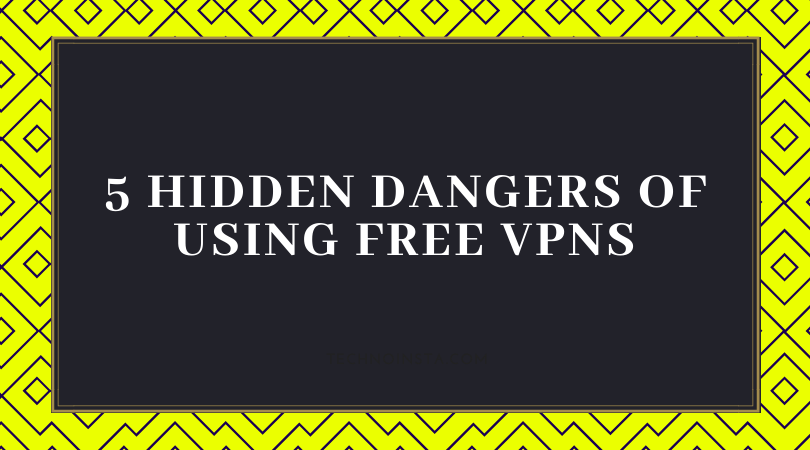5 Hidden Dangers of Using Free VPNs
Virtual Private Networks (VPNs) have had a steady surge in popularity over the past several years. This is especially due to the increase in online surveillance, geo-restrictions, and cybercrimes. Once you connect to a VPN server, you can easily hide your online activities, secure your connection, access geo-restricted content, circumvent government censorships, and do so much more.
VPNs are even more inviting, considering that there are thousands of such apps that don’t require you to pay a single penny. They promise to offer you privacy, security, and freedom, all for free. However, are these VPNs really free?
Running a VPN service is quite costly, and so these VPNs look for other ways to pay the bills and make a profit. Most of them resort to methods that are not only hazardous and deceitful but also betray the whole idea of a Virtual Private Network. Below are some dangers of using free VPNs.
Dangers of Using Free VPNs
Tracking your Online Activities
One of the primary reasons for using a VPN is to restore privacy and avoid ISP tracking. However, most VPNs betray the whole idea of privacy by tracking your online activities and storing them.
After that, what do they do with all this data? They sell it to third-parties who can use it for whatever purpose they want to. A CSIRO study that was done on 283 VPNs found that 72% of free VPNs were using third-party trackers.
Notable in this category is Onavo Protect, a Facebook product that was being marketed as a VPN. It was later found out to be spyware that collects user data. It was later banned from the Play Store and App Store in 2019.
Unfortunately, most free VPNs are not straightforward with their privacy policies. Others are, but as usual, users do not bother to read, especially when they are getting the service for free. If you do not want to put your data in dangerous hands, it’s best to consider a reputable premium VPN.
Poor Security
Security is another core functionality of VPNs, but the level of security ranges from one VPN to another. Free VPNs are notorious for low-security levels. This is especially because they do not have the capability to implement various security features such as DNS/ IPv6 Leak Protection, kill switch, etc.
Others use poor encryption standards to avoid poor speeds, especially since they only have a few servers. These low levels of encryption can’t guarantee you the security of your data or identity, and it can be dangerous having a false sense of security.
Bombarding users with Ads
Displaying ads is a common method used by free VPNs to make money. These usually add some form of adware that displays annoying ads. Others even target you with specific ads, which means that they are also tracking you and probably selling your data to advertisers.
In 2017, Hotspot Shield VPN received an FTC complaint about using over-the-top privacy violations in serving ads. This was through their free VPN product.
Selling your Bandwidth
Some free VPNs offer a user’s bandwidth to other users, allowing them to use it as an exit node. One such VPN is Hola, a popular free VPN. The VPN’s model is based on a “community-powered” peer-to-peer (P2P) network, implying that users are connected to other users instead of direct connections to a server.
This means that other people are using your bandwidth as well as your IP address. If malicious people connect to the network and use your IP address to carry out illegal activities, you can end up in deep trouble.
Apart from that, the VPN also has a business plan where it lets paying customers other users’ bandwidth for profit. This is done through their sister brand Luminati, a company that once been involved in a botnet attack.
Questionable Ownership
Another hidden danger of using free VPNs is that most of them are owned by the same companies. These VPNs are usually under different subsidiaries to hide ownership, and this raises a lot of questions. If you are trying to avoid a certain VPN that has been exposed due to bad practices, you can easily end up with a different product of the same company.
Further, according to a recent study, over half of the top free VPN apps either have hidden Chinese ownership or are actually based in China. Considering that China has banned the use of VPNs, these apps may be owned by the Chinese government and used to spy on users.
Wrap up
TANSTAAFL! All free VPNs are out there to make money. This may be by directly exploiting you, or using a limited free product to entice you to upgrade to a premium service. If you want to gain the benefits of a VPN, do not sacrifice your privacy and security. Always do a lot of due diligence on the VPN you want, putting a priority on a reputable, paid service.





